As we are sitting here within the 5th ring road of Beijing, it is hard to imagine that 40.4% of the Chinese population still doesn’t have access to the Internet. As this population gains access to the mobile Internet at a faster pace, it generates tremendous opportunities for entrepreneurs and marketers.
Penguin Intelligence published the 2019 China Internet Trend Report. Here are some highlights:
-
- 378 million mobile Internet users have middle school or below educational background
-
- Only 16% of the Chinese population aged 60 or above has access to mobile Internet
- In the year 2017 to 2018, the number of Internet users who are below 10 years old grew by 27.6%; and the number of Internet users above 60-years-old grew by 44.6%
-
- Pinduoduo is the only major e-commerce platform with a majority of users without undergraduate degrees
- 83% of lower education users spend within 1,000 RMB per month on online shopping
- Weibo and Zhihu are the only social platforms that are strongly preferred by users from higher educational backgrounds
- Users with a lower educational background strongly prefer watching short videos
- 57% of users above 50 years old shop both online and offline; and 82% of them use mobile payment when shopping offline.
Internet penetration for the “new generation”
A large amount of non-traditional Internet users is emerging.
36.5% of lower-tier city users have access to the Internet. 927 million people have middle-school or lower education, and 45.7% of them have access to Internet
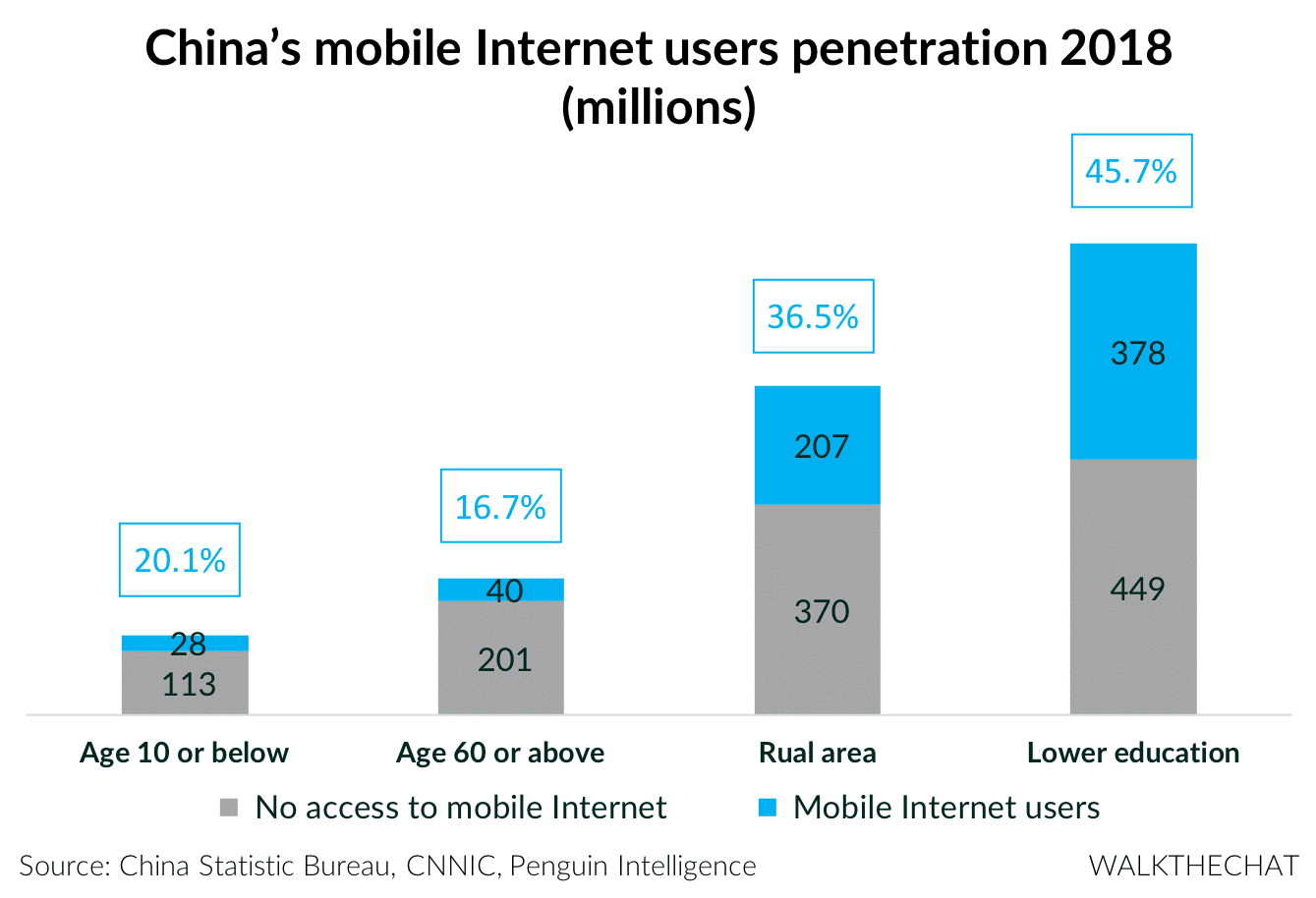
Fast growing first-time Internet users
Within the last year, a large among of first-time Internet users was “born” or “re-born”. Internet users who are 60 years old or above grew at an astonishing pace of 44.6% in the past 2 years.
Users aged 10 or below are the second fastest growing population with 27.6% growth rate in the past 2 years.
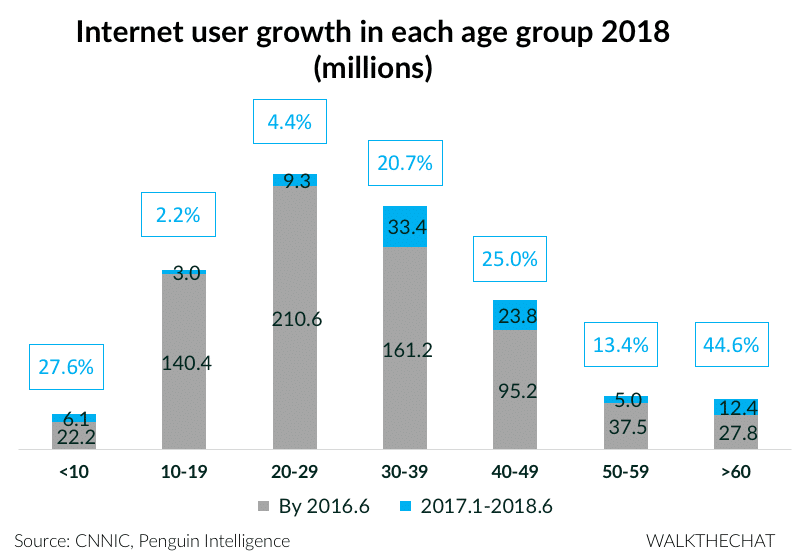
Lower Education Internet Population
This is China’s biggest mobile Internet user group, and one of the fastest growing Internet populations.
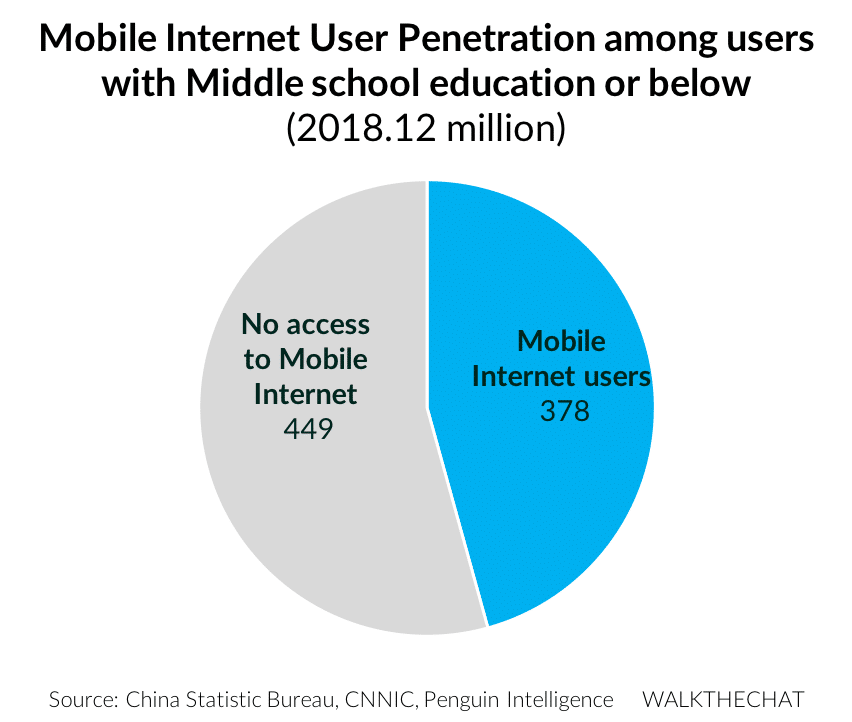
Taobao has the highest penetration of 86.5% among the lower education user group. Pinduoduo is the only platform with larger penetration among the lower-educational group. This gives Pinduoduo a competitive edge to gain more market share among these new Internet users.
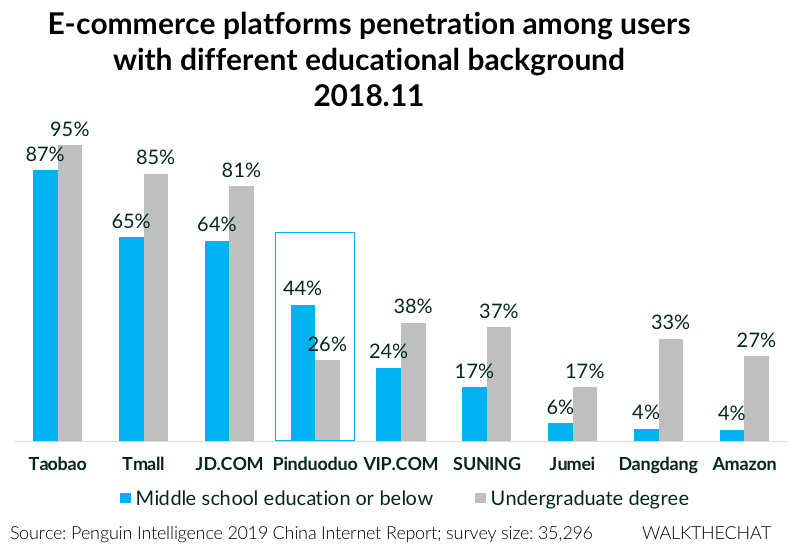
Taobao clearly stands out as the most used e-commerce platform for all users groups. Still, 8.1% of lower education users choose Pinduoduo as the most frequently used platform.
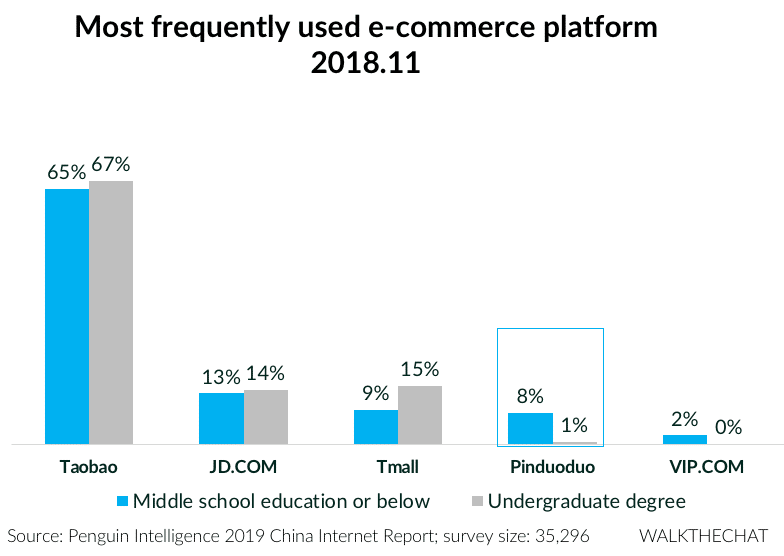
83% of lower education users spend within 1,000 RMB per month on e-commerce platforms.
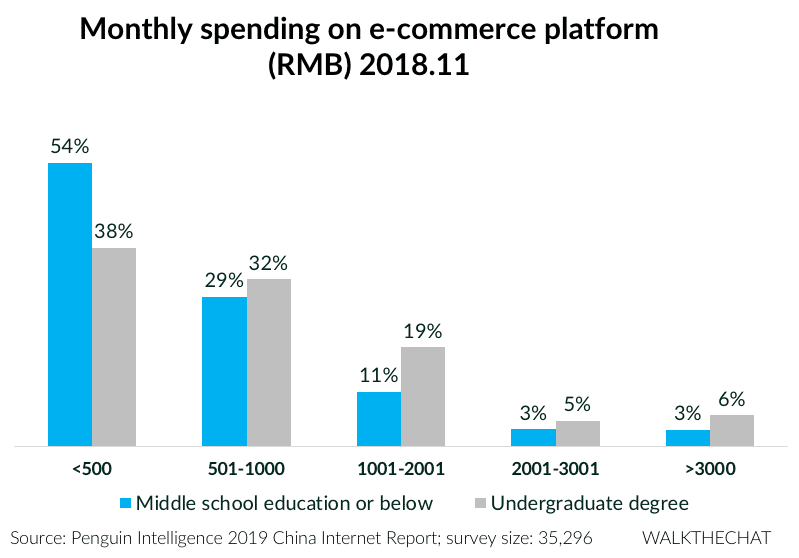
And users with undergraduate degrees are more likely to spend a majority of their monthly income online.
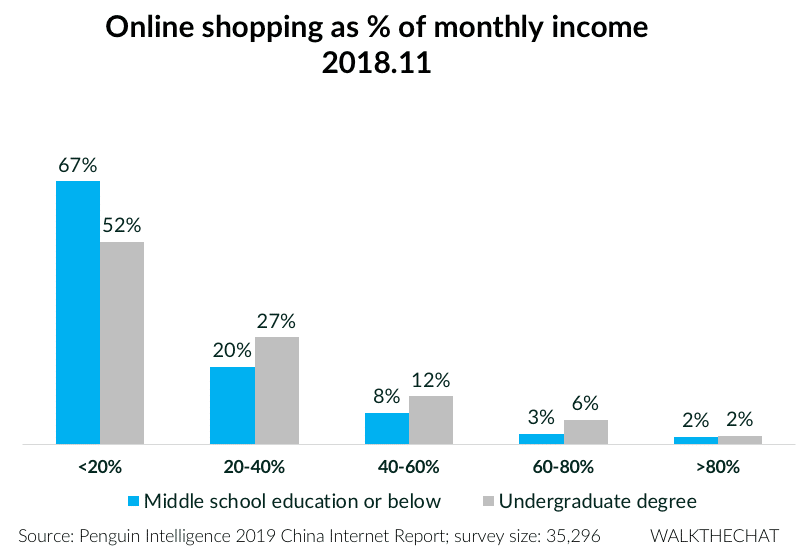
WeChat has the highest penetration in both groups, but Weibo, Zhihu, and Douban are most used by users with undergraduate degrees.
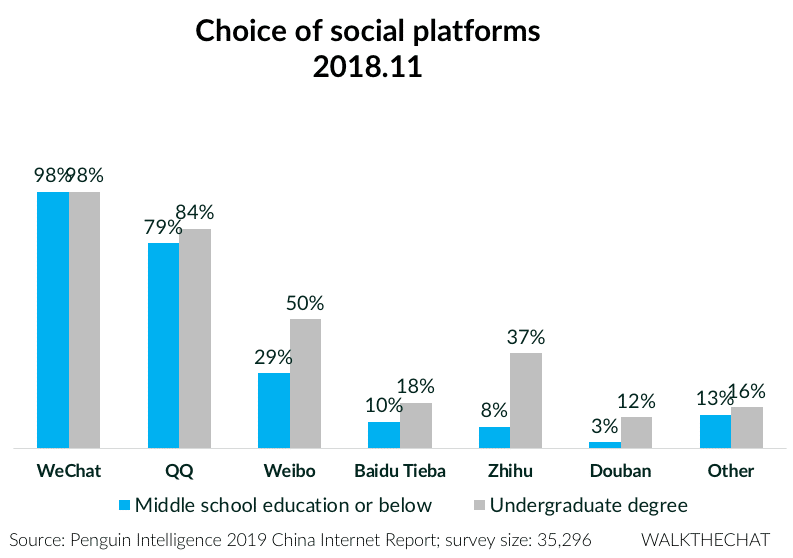
Short-video platforms are preferred by lower education users
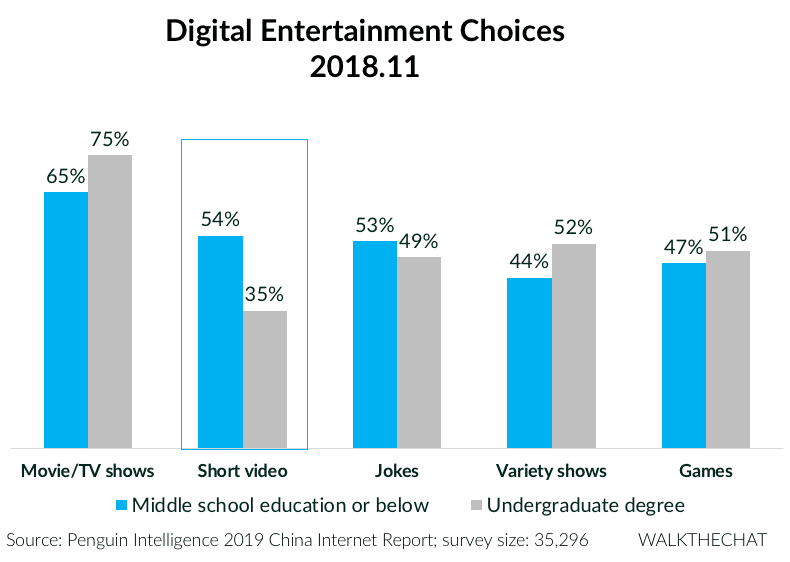
Chinese Internet users aged 40 years old or above
By 2017, China had 670 million people above 40 years old.
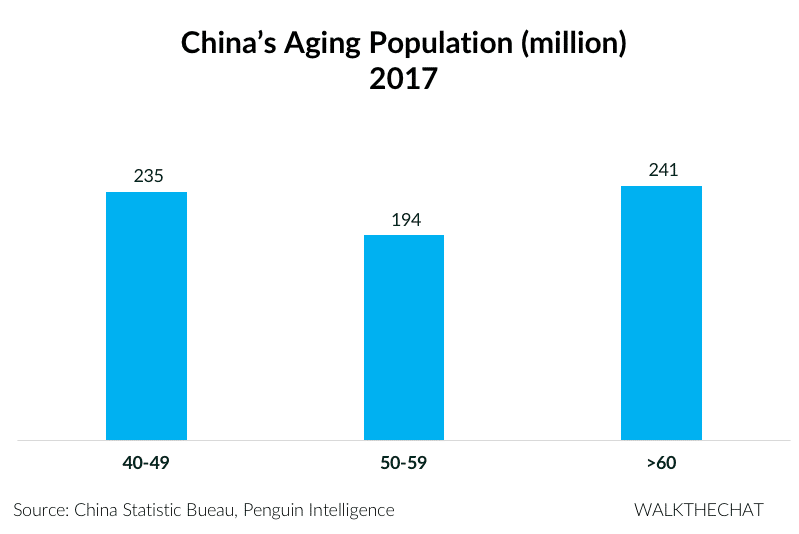
More than 50% of these users would shop at both online platforms and offline stores.
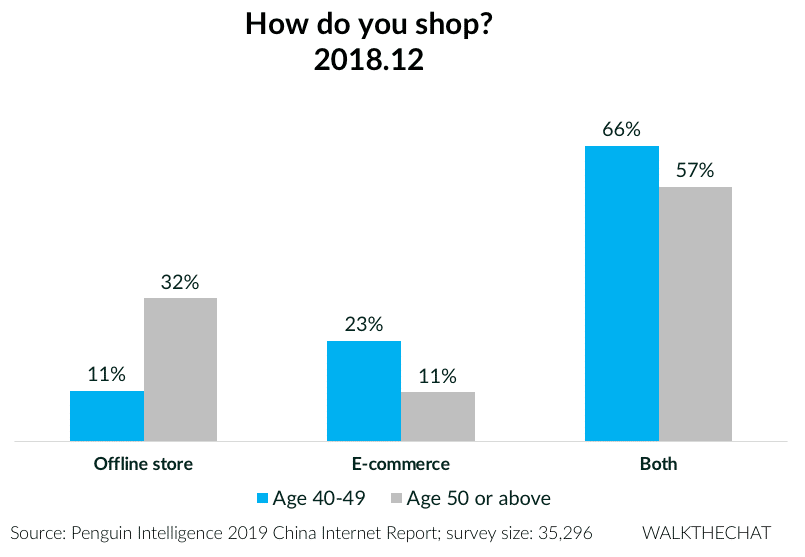
And mobile payment penetration is above 80% for both groups.
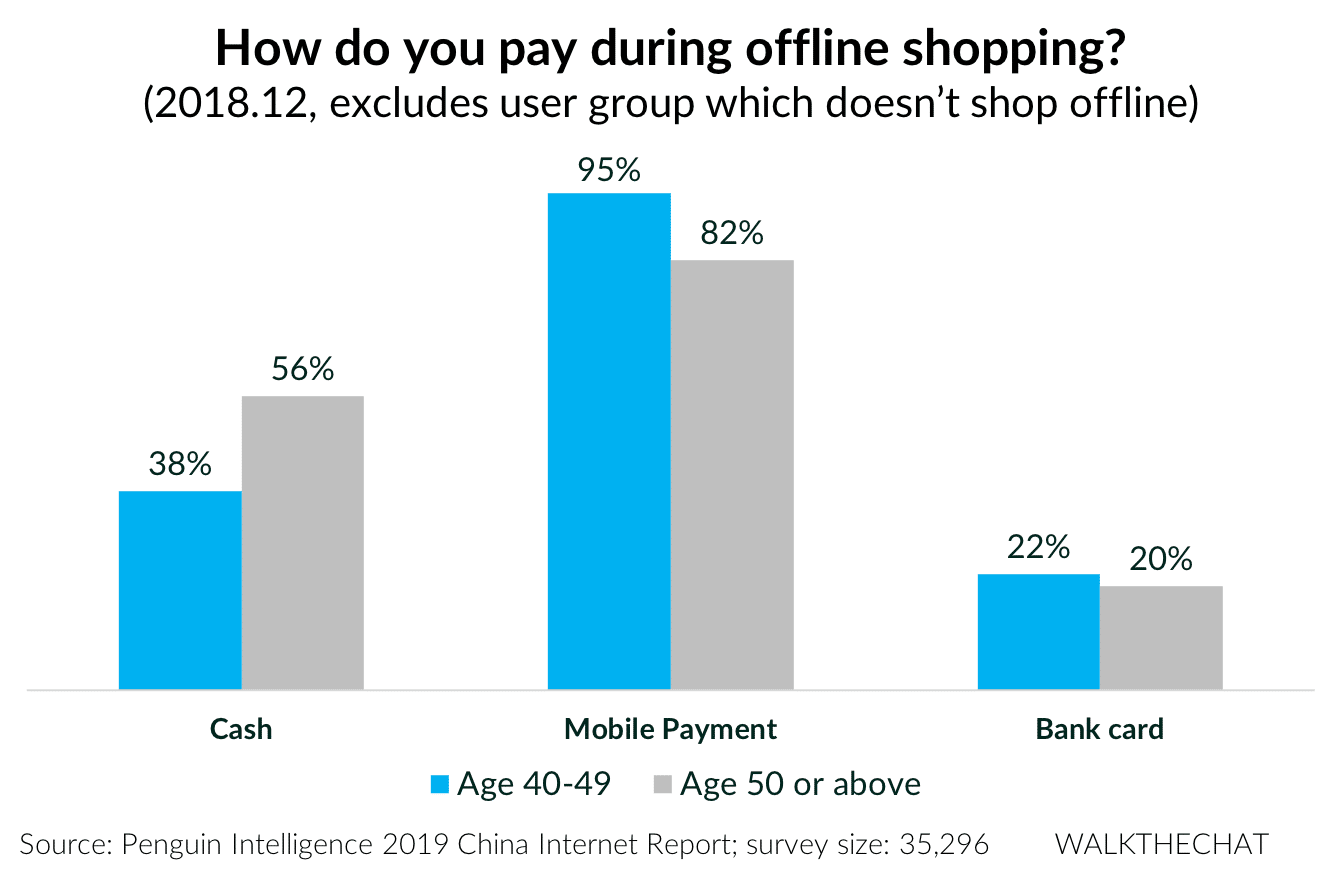
Conclusion
Despite its explosive growth, China still has a lot of room to expand its Internet users base: more than 40% of people still don’t have access to the mobile Internet in China.
This creates unique opportunities for new players such as Pinduoduo or community group buy platforms to fight entrenched companies such as Taobao or JD.com.
The next battleground for Chinese Internet companies will be to attract these brand new Chinese Internet users.

